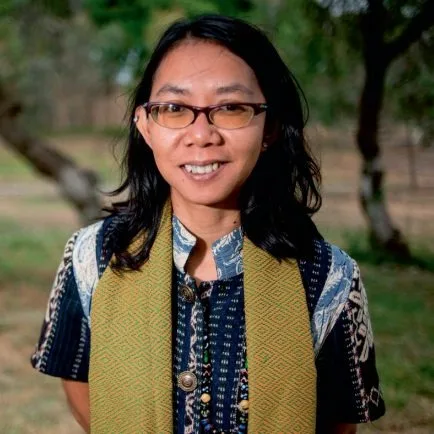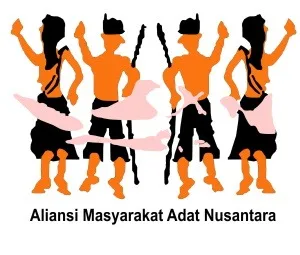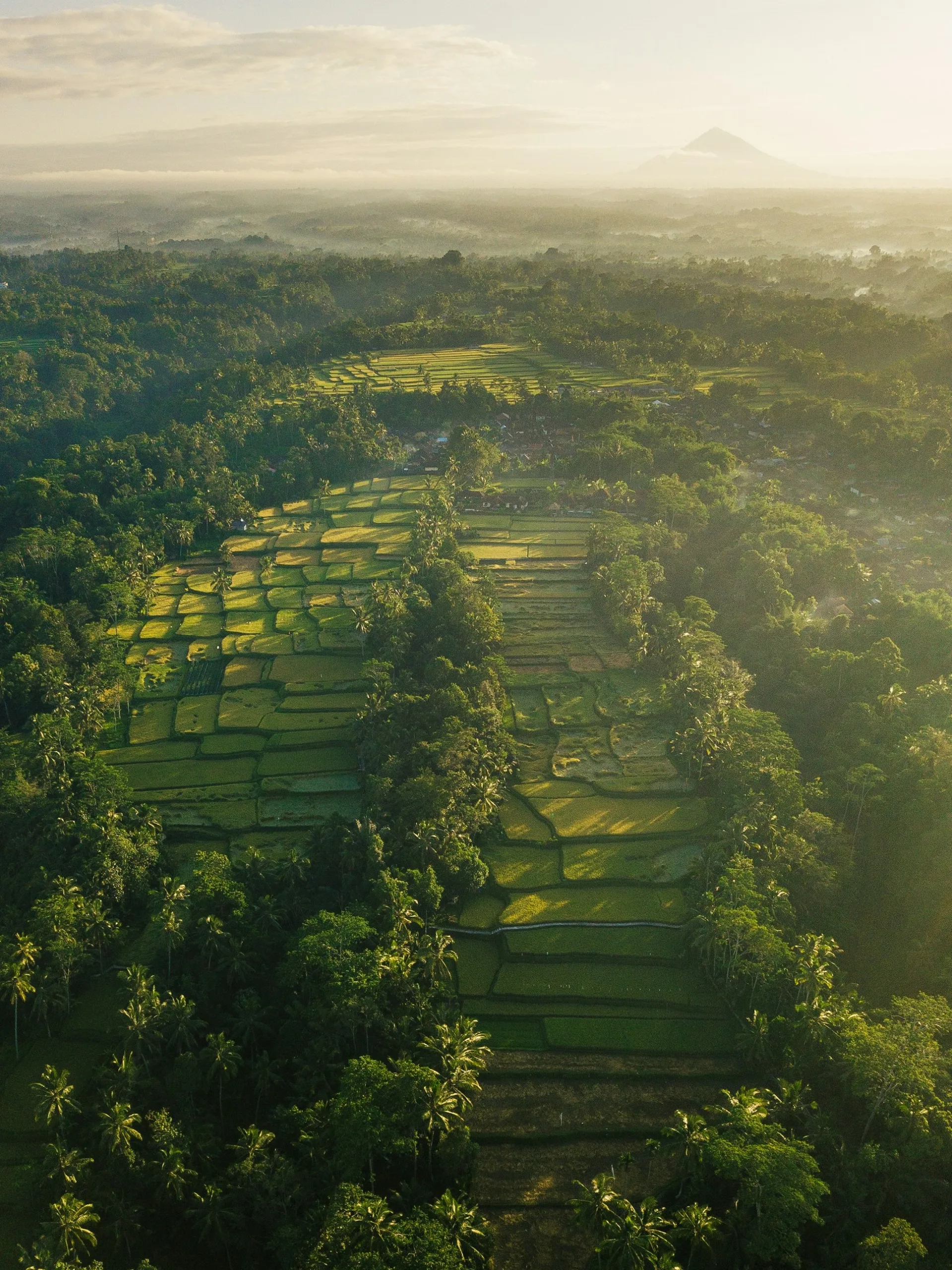Author: Júlia Fortuny
In this blog post, we want to share the powerful story of Mina Susana Setra, a lawyer and Indigenous Dayak Pompakng activist whose tireless work has inspired us deeply. Her dedication to defending the rights of Indigenous communities and protecting their lands is a true testament to the resilience of those fighting for justice.
“What kind of world do you want to create? A just and prosperous world for Indigenous Peoples, where they are free to manage their customary territories, without having to fight with the army or get arrested by the police, or without having to fight with companies. A world where justice is served both within the community and outside of it.” – Mina Susana Setra
Mina Susana Setra was born in West Kalimantan, Indonesia, and is an Indigenous Dayak Pompakng activist and lawyer. She is dedicated to advocating for Indigenous rights and environmental justice, particularly in response to the deforestation and land conversion for palm oil plantations that have affected her community.
In West Kalimantan, the Dayak community faces significant challenges in protecting their land and culture. Their ancestral lands are being taken by large companies for palm oil plantations, disrupting traditional rice farming and threatening cultural practices. Additionally, small-scale mining operations are polluting rivers that are vital for their daily needs, with women in the community particularly affected by these environmental issues.
“My village in Indonesia was also beautiful. It had land and forests. We lived off the forest fruits. But we lost it all. It’s now gone, in smoke and big palm oil.” Setra reflects for FordFoundation.

Motivated by her experiences, Setra decided to dedicate her life to fighting against this violence and defending the rights of her people. This is shown in her work within Aliansi Masyarakat Adat Nusantara (AMAN) or Indonesia’s Indigenous Peoples’ Alliance of the Archipelago (AMAN) since its foundation in 1999, where she currently serves as its Deputy Secretary General.
Mina Setra’s Fight with AMAN: Uniting Indigenous Voices Against Land Expropriation
AMAN is an independent organisation representing over 17 million Indigenous people from nearly 2,300 different Indigenous communities in Indonesia, advocating for their rights to manage ancestral forests and territories. It was created as a response to decades of policies that marginalised and misrepresented Indigenous communities, often perceiving them as obstacles to “development”.

“If the state does not recognise us, we will not recognise the state” – First Congress of AMAN, 1999
One of the main challenges Indigenous communities face in Indonesia is the ongoing expropriation of their lands, which contain immense wealth in terms of biodiversity and cultural significance. This loss often comes with violence and the criminalisation of those who resist.
In response to these challenges, AMAN works to unite Indigenous peoples across the archipelago, fostering a sense of shared purpose and collaboration. They have made significant efforts to map ancestral territories, helping communities articulate their claims and demonstrate ownership of their lands. This work is vital for ensuring that their voices are heard and their rights are respected.
Securing Indigenous Territories: Setra’s Legal Battle for Land Recognition
The recognition of Indigenous rights has never been fully integrated into Indonesian law, leaving communities vulnerable to exploitation. For this reason, Mina Setra’s work within AMAN is vital in the struggle for Indigenous rights in Indonesia. In 2012, she led a team to challenge the government’s claim over customary forest areas – forests that Indigenous communities have traditionally owned and managed according to their customs and practices. This effort resulted in a historic court ruling which recognised these forests as integral to Indigenous territories. This decision empowered communities to reclaim and rehabilitate lands damaged by corporate activities.
Despite the ruling, the Indonesian government has been slow to act, with the Ministry of Forestry centralising control and creating bureaucratic hurdles that complicate Indigenous land management. Setra and AMAN continue to press for real implementation of the ruling and the adoption of the Bill on Recognition and Protection of the Rights of Indigenous Peoples. Setra’s advocacy seeks not just legal victories but genuine, lasting change for Indigenous communities across Indonesia.
FPIC: A Tool for Indigenous Resistance Against Land Expropriation
“A state-owned company turned the whole community into a plantation producing oil for American and European lipstick, Nutella, and chocolate” explains Setra for Grist, emphasising the impact of industrial exploitation on her land.
To prevent these actions from repeating themselves, Setra has also worked extensively with the Free, prior and informed consent (FPIC) mechanism, a principle recognised by various international legal instruments, which ensures that Indigenous peoples have the right to be consulted and subsequently approve or reject any action affecting their lands, territories, and rights.

“If you are in your own kitchen and somebody came and cooked in your kitchen, or someone started cutting down the forest in your backyard, without saying anything to you – how do you feel? They have to ask permission.” Setra says. When governments change the status of territories to “protected areas,” it significantly impacts the community. “The forest is like a supermarket” Setra explains, providing communities with food, medicine, and resources essential for their survival. If access is restricted, communities often protest these decisions, which often leads to violence and arrests.
Reflecting on this issue, Setra explains, “In Indonesia, we do have problems with conservation, national parks and protected forests. In 2015, we had 11 Indigenous leaders in jail, arrested because they were protecting their territories and their community who live in the National Park. Actually, the National Park claimed their territory as a National Park, so they cannot give access to people, and then shut down the community and attacked them, asking them to move away from this place, and arrested some leaders.”
The FPIC mechanism is designed to prevent these types of conflicts. By promoting negotiation and effective lobbying with the government, FPIC helps Indigenous communities safeguard their rights and address disputes through communication and negotiation. When decisions are made without consultation, it can lead to tensions that escalate into violence and arrests. By ensuring that Indigenous peoples have a say in matters affecting their lands, FPIC aims to create a more equitable dialogue and reduce the likelihood of conflict.
REDD+: Amplifying Indigenous Voices in Sustainable Forest Management
Setra has played a crucial role in AMAN’s efforts within the REDD+ framework, a UN initiative aimed at reducing forest emissions and encouraging sustainable forest management in developing countries. Her commitment ensures that Indigenous communities are not just recognised but can also actively participate in these climate initiatives.
In her experience, “REDD+ has contributed a lot for Indigenous peoples. In the past 10 years we are more visible, internationally, nationally, regionally, because when people talk about forest, you cannot escape talking about Indigenous peoples, who have been protecting and owning the forest for centuries”.

By guiding these communities through the complexities of REDD+, Setra helps amplify their vital role as caretakers of the land. They assist in measuring carbon levels and mapping territories, showcasing how Indigenous lands contribute significantly to national climate goals and local economies. This work highlights the value of Indigenous knowledge in forest preservation and advocates for policies that support these communities’ essential role in building climate resilience.
As she asserts, “We want to call to the governments, that protecting Indigenous people’s rights is the cheapest investment and easiest solution, they just need to have a good political will to do it”
If Not Us, Then Who?: Setra’s Mission to Uplift Indigenous Voices
Setra’s work within AMAN, which goes far beyond what can be captured here, demonstrates her deep commitment and passion for Indigenous peoples’ rights and sustainable practices. Beyond AMAN, Setra is also deeply involved in other initiatives that amplify Indigenous voices and promote environmental stewardship. This dedication is shown in her role as president of If Not Us, Then Who, a global awareness campaign dedicated to highlighting the critical role Indigenous and local communities play in protecting the planet.
With the recognition that Indigenous peoples are the best guardians of the forest, the initiative seeks to support their environmental leadership through storytelling, artistic expression, and advocacy. By building relationships with these communities, they highlight their essential demands and land rights, the right to be consulted on decisions affecting their lives, safety from violence, direct access to funding, and the importance of their ancestral knowledge in shaping climate policies. At its core, If Not Us Then Who? seeks to uplift Indigenous voices.
Conclusion
Mina Susana Setra’s tireless advocacy exemplifies the strength and resilience of Indigenous communities in Indonesia as they fight for recognition, rights, and environmental justice. Through her work with AMAN and initiatives like REDD+ and the FPIC mechanism, Setra not only champions the legal recognition of customary lands but also empowers communities to assert their rights and safeguard their territories. Her efforts illuminate the vital role Indigenous peoples play in protecting biodiversity and fostering sustainable practices. Ultimately, Setra’s vision of a just world, where Indigenous rights are respected and upheld, inspires hope for a future where these communities thrive and continue to protect their ancestral lands for generations to come.